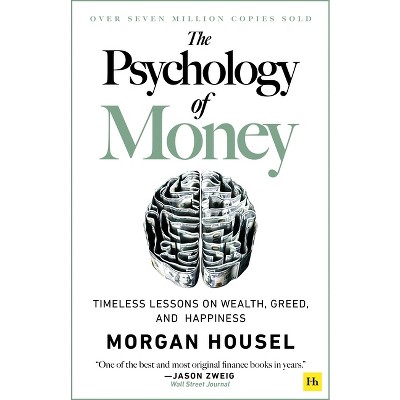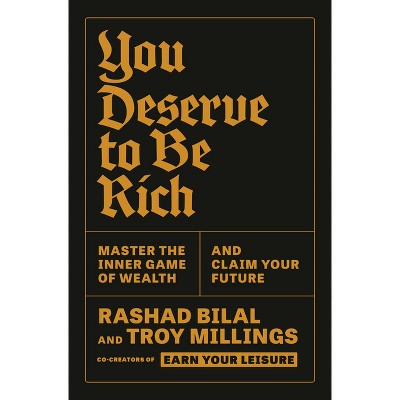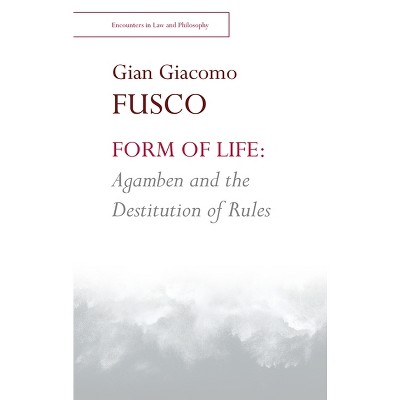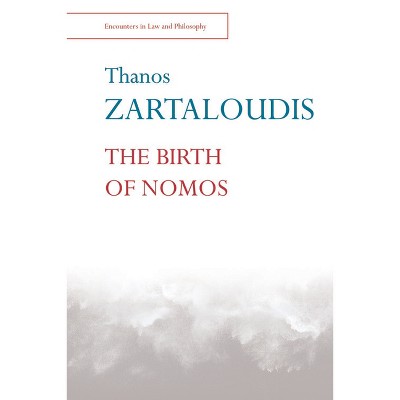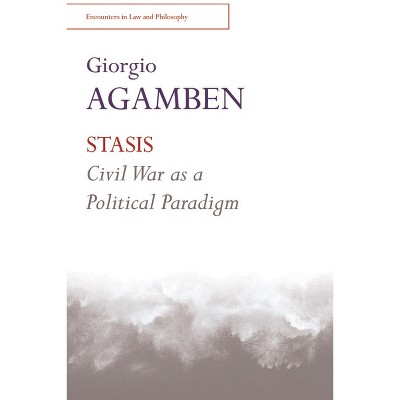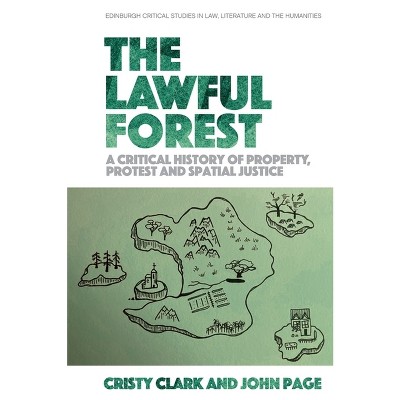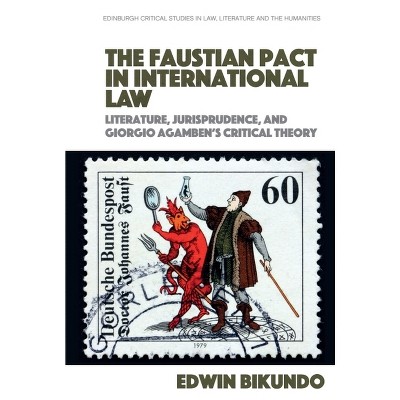On the Idea of Potency - (Encounters in Law & Philosophy) by Emanuele Castrucci (Paperback)

About this item
Highlights
- Sweeping through the history of Western philosophy of law, Emanuele Castrucci deals with the metaphysical idea of potency as defined by Spinoza and Nietzsche, upsetting entrenched theories of jurisprudence.
- About the Author: Emanuele Castrucci is Professor of Philosophy of Law at the University of Siena.
- 200 Pages
- Freedom + Security / Law Enforcement, Jurisprudence
- Series Name: Encounters in Law & Philosophy
Description
About the Book
Emanuele Castrucci bridges the two seemingly unrelated worlds of classical Greek philosophy and Jewish biblical exegesis. He connects them through the historical nexus of Christianity, which has marked the destiny of Western philosophy across the political, philosophical and jurisprudential horizons.
Book Synopsis
Sweeping through the history of Western philosophy of law, Emanuele Castrucci deals with the metaphysical idea of potency as defined by Spinoza and Nietzsche, upsetting entrenched theories of jurisprudence. From classical Greek philosophy to Jewish biblical exegesis, via Christianity; from Aristotle's Metaphysics to its Arabic interpretations; from the genesis of natural law theory (Augustine, Aquinas, Duns Scotus, Ockham), to Kant and Enlightenment natural law theory, to Carl Schmitt, Castrucci shows how philosophical rationalism has failed to contain absolute power in a juridical sense.
From the Back Cover
Note: Please remove the colon on the front cover and change "of Western Cultural Tradition" to "of the Western Cultural Tradition". [series text] Critiques the metaphysical concept of power and potency in the history of Western jurisprudence Sweeping through the history of Western philosophy of law, Emanuele Castrucci deals with the metaphysical concept of potency as defined by Spinoza and Nietzsche, upsetting entrenched theories of jurisprudence. Castrucci first addresses how potency can limit the power ascribed to an omnipotent God. This brings together classical Greek philosophy with Jewish biblical exegesis, which Castrucci links through the juncture of Christianity. He then relates potency to the classical philosophical tradition in Aristotle's Metaphysics and its Arabic interpretations, particularly those of Ibn Rushd (Averroës). This leads us to the genesis of natural law theory in Western philosophy, from Aquinas to Augustine and from Duns Scotus to Ockham. Moving on, Castrucci examines the inherently problematic concept of political theology, pitting Spinozan-Nietzschean potency against Kant and Enlightenment natural law to reveal the weaknesses inherent in the Enlightenment system. Finally, Castrucci applies the theories of Carl Schmitt to the philosophical rationalism of the Western tradition, showing us how it has failed to contain absolute power in a juridical sense. Emanuele Castrucci is Professor of Philosophy of Law and the University of Siena. He taught previously at the Universities of Florence and Genoa. His studies mainly concern the domain of the history of legal and political ideas. He has contributed to the diffusion in Italy of the thought of Carl Schmitt, editing the Italian edition of Der Nomos der Erde im Völkerrecht des Jus publicum Europaeum (1991). Cover design: [EUP logo] www.euppublishing.com ISBN BarcodeAbout the Author
Emanuele Castrucci is Professor of Philosophy of Law at the University of Siena. He taught previously at the Universities of Florence and Genoa. His studies mainly concern the domain of the history of legal and political ideas, which include such areas as the sources and forms of modern European legal thought, the reconstruction of the legal theory of the early 20th century German State and the theological roots of the cultural tradition of Western civilization. He has contributed to the diffusion in Italy of the thought of Carl Schmitt, editing the Italian edition of Der Nomos der Erde im Völkerrecht des Jus publicum Europaeum (1991).
Shipping details
Return details
Trending Business & Law Books

